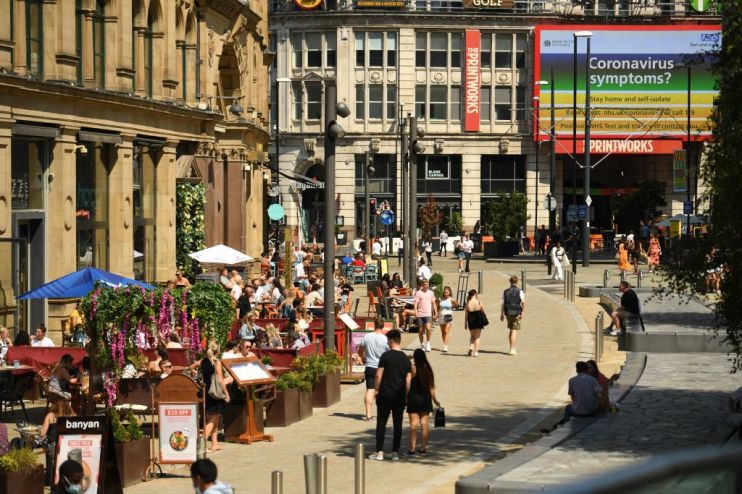England’s coronavirus spread slowed as lockdown eased, according to study

The spread of coronavirus in England slowed as the country transitioned out of the initial lockdown phase and shops, pubs and restaurants started to reopen.
The spread of infections slowed in June and early July, according to an Imperial College study of 150,000 volunteers.
“As the SARS-CoV-2 epidemic in England transitioned out of its initial lockdown phase, prevalence of swab-positivity continued to decrease,” the so called Real-time Assessment of Community Transmission study found.
Last week the Prime Minister postponed the easing of further restrictions following a spike in cases. Boris Johnson hit the brakes on opening up “at risk” settings, which include sports venues, casinos, leisure centres and weddings.
“We should now squeeze that brake pedal in order to keep the virus under control,” said Johnson last week. “I’m really sorry about that but we simply cannot take the risk.”
The government also reimposed lockdown measures in the north of England, specifically in the regions of Greater Manchester, east Lancashire and parts of West Yorkshire following a rise in infection numbers.
The Imperial College Study also found that risk of infection was higher in London than in other areas of England. Earlier this week the government did not rule out travel bans in and out of the capital if the number of cases worsened.
The recently released “contain strategy” sets out the possibility of restricting travel in and out of an area. Within that involves closing down local transport networks.
Earlier this week, figures show weekly coronavirus deaths fell more than a quarter in seven days to 24 July, the lowest level since before lockdown.
England and Wales have recorded weekly death rates lower than the five-year average for the sixth week in a row, according to the Office for National Statistics (ONS).
Get the news as it happens by following City A.M. on Twitter.